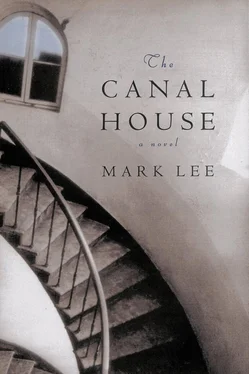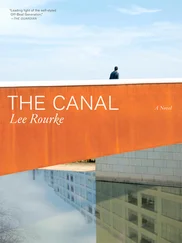“I hope so.”
“I worry about him. If you two end up working together, please make sure he doesn’t do anything crazy.” She stepped a little closer and watched my eyes. “Promise?”
IT STARTED RAINING a few days later. Cars hissed down the wet street outside the hotel. I sat alone in my room taking in words and images from East Timor on my computer screen. There had been a brief moment of peace on referendum day. Then the United Nations had announced that a majority had voted for independence. Street fighting started in Dili, the capital, and the entire country lurched into a civil war. After the United Nations pulled out, Indonesia’s president asked for a peacekeeping force to take control.
I called the Hand-to-Hand office and the receptionist said that Dr. Cadell and Mr. Seaton had already flown to Australia. My phone at the hotel started ringing, but I refused to answer. I was still on vacation. It was easier to hide at the Lamb, drinking beer and reading the British tabloids. That summer, reporters were running around the country with thermometers looking for the working man with the hottest job in England. So far, it was a tie between a baker in Plymouth and a Jamaican who smeared tar on leaky roofs.
I thought about staying in the Lamb until my money ran out. When the phone rang early one morning I tried to ignore it. Newsweek always gave up after a minute or so, but this time the ringing didn’t stop. That could only be Daniel.
I picked up the handset. “Forget it,” I said. “I’m asleep.”
“Hey, Nicky!” Daniel was on his cell phone, driving down to Rome. “Everybody’s been trying to contact you. I’m going to East Timor with the UN task force. Julia will be working there, too.”
“You don’t have to go.”
“Of course not. There’s always a choice. I’ve thought about other jobs, Nicky. And I always come up with the same answer. I’m a good journalist. You’re a good photographer. It’s what we do.”
He stopped talking and I could hear tires squealing as the car went around a turn. Daniel didn’t beg me to go with him, but I suddenly felt childish for hiding at the Lamb. He needed a friend to come along. A stand-up guy.
“Slow down,” I said. “I’ll meet you in Australia.”
I decided to leaveimmediately and was able to get on a plane going from London to Melbourne. It was a four-movie flight. My legs cramped up and I found it difficult to sleep. After I passed through customs in Melbourne I realized that I had eight hours to kill, so I took a bus into the city and walked down Flinders Street to a pub across from the train station. Young and Jackson’s had once been a spit-on-the-sawdust establishment, but now it was slicked up like the rest of the city with a coffee bar on one side and carpets upstairs. Still, it was a pleasant enough place to sit at a corner table and watch the Australians drink. The whole country had a short-sleeve style. Even though some of the executive types at the bar were wearing suits, I felt like they were hurrying home to change clothes as soon as they finished their beer.
I left the bar with a vague idea of crossing the street to St. Paul’s Cathedral and lighting a candle for good luck. The moment I reached the curb, the mixture of alcohol and jet lag hit me hard and I knew that I should sit down as quickly as possible. There was a tram stop near the intersection, the green and yellow cars heading out to the suburbs, so I stumbled onto the No. 8 and sat down near an open window.
I was worried about East Timor and the feeling was a bit stronger than usual, something more fundamental then tension about doing a good job. But the moment the tram closed its doors and started moving, the fear began to go away. The evening light softened all the sharp edges of the world. We crossed the Yarra River and there were two rowing shells gliding toward the bridge, the long oars breaking the surface of the water. An old man wearing shorts and black socks got on the tram followed by a group of schoolgirls in checkered jumpers. And suddenly I loved the old man and the girls, loved all the Australians with a drunken benevolence as we started moving again. Tram wheels clicked past a line of massive elm trees in Fawkner Park. Not many elms in America. Gone. All gone. Some kind of fungus. I remembered from childhood how the heavy, gray branches of the trees reached down to the grass, and if you slipped beneath them it was cool and quiet and safe. It was going to be all right, I thought. Relaxed and a little sleepy, I stayed on the tram as it made a dogleg turn at Park Street and clattered toward the gloom of lower Toorak Road.
I RETURNED TO the airport in the dark, ate a burger and some chips, then took the red-eye flight north to Darwin. The sun came up and I could look down at the countryside. There was a vast ocean of red desert, a yellowish flood plain, a dry riverbed slithering across the landscape like a giant snake. As we approached Darwin, the earth became greener, and we passed over lakes and farms, the rectangular fields bordered by roads. Small clouds made separate shadows on the land like little clumps of dark wool scattered across a meadow. Gradually, the trees below us moved closer together, merging in a tropical forest. The plane passed over the mangrove swamps on the edge of Frances Bay, circled over the ocean, then turned back toward the airport.
The runway was bordered with palm trees. It was early in the morning, but I felt the heat the moment I got off the plane. Wet season, the cyclones and the monsoon rains, were still a month or two away, but there was already some humidity in the air, a gathering tension for the storm that was going to arrive. Inside the terminal, I looked out the window at the tarmac and saw that a C-130 transport plane had landed and soldiers were unloading refugees from East Timor.
I left the terminal. A chain-link fence surrounded the airport runway, but I followed three military trucks through the parking lot to a guarded gate. Trying to look like part of the plan, I flashed my Newsweek ID card and nodded to the Australian army sergeant in charge of the convoy.
“Is this the right place?” I asked. “They just called me. I’m supposed to meet the refugees.”
“Well, they’re here,” he said. “We’re picking them up.” The sky was clear, and bright sunlight bounced off every piece of glass and metal. I climbed onto the truck’s running board and nodded to the guard as we rode out onto the tarmac. A group of civilian doctors and nurses were there to help the refugees getting off the plane. The Timorese were small, delicate-looking people with high cheekbones and round eyes. They had light brown skin: a mix of Malaysian, a little South Sea Islander, and four hundred years of the Portuguese. The older women had sarongs, but everyone else wore Western-style clothes and rubber thong sandals.
I got a wide shot of the Hercules transport plane, then took a close-up of an Australian soldier holding a little girl. An elderly Timorese woman began to cry, clutching a red cloth bag with all her belongings. When a very blond Australian nurse approached the old woman, I captured a good shot of the two cultures standing together. There, I thought. That pays the rent. Then a military policeman waved me away and I left the area, taking the airport shuttle into town. We rode past banyan trees and Carpenteria palms and climbing ferns with heart-shaped leaves. Some of the plants had shed their foliage during dry season and there was a sparseness in the vegetation like a man with thinning hair.
“Goin’ to Timor?” asked the driver.
“Yes. In a few days.”
“Wouldn’t catch me there,” he said. “Lot of shootin’ and no sense.”
I checked into a hotel on Daley Street and got a message from Daniel saying that he’d be in late that afternoon. Attaching my computer to the phone, I downloaded the digital shots and sent them to Newsweek . All my images were turned into bytes of energy, bounced off a satellite and thrown across the world. The blond nurse and the old woman would be sold and cropped and printed, an object independent of their lives.
Читать дальше












